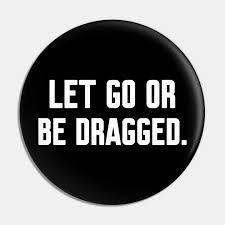
As the new year got underway, a new congressman from Oregon introduced a bill to congress called H.R.420; or the “Regulate Marijuana Like Alcohol Act”. According to the representative’s summary, this bill would allow the federal government to responsibly oversee the regulation of cannabis related activities, much like it does alcohol. In other words, the federal government would allow states to make their own laws on how Marijuana is regulated (think Mississippi’s Wet-Dry Map for alcoholic beverages and St. Louis City’s laws on regulating Sunday Liquor sales).
This is all well and good, but how does this affect the cannabis business entrepreneur who lives in a state where cannabis is already legal? For starters, it legitimizes the sale of marijuana through the eyes of the Federal government. As of now, there are numerous federal laws that classify marijuana as an illegal drug. Therefore, any business that deals with marijuana is in violation of federal law. H.R.420 would specifically change this by attaching “and marijuana” to descriptions of allowed substances (alcohol) and removing it from other sections that classify marijuana as an illegal substance.
H.R.420 would also legitimize tax breaks for marijuana involved businesses. As of now, according to the infamous Section 280E, “no deduction or credit shall be allowed for any amount… in any trade or business if such trade or business consists in the trafficking of controlled substances.” This tax section has made it nearly impossible for businesses to receive overhead expense deductions if their business involves buying, selling, or reselling marijuana. There have been many attempts to challenge Section 280E (along with Section 263A, laws applying to reselling) to legitimize the use of marijuana in business. Unfortunately, this has successfully been accomplished very few times (read CHAMP v. Commissioner) and in most cases (read Olive v. Commissioner, Canna Care, Inc v. Commissioner, Alterman and Gibson v. Commissioner, etc.) the courts find that these businesses sole purpose relates to that of marijuana, creating steep taxes owed to the government. Without marijuana being removed from the controlled substances list, there is little to no hope of successfully deducting overhead expenses in the operation of a business with marijuana.
The decriminalization of marijuana would allow cannabis business entrepreneurs to freely use banks and apply for the use of loans. Under the current laws, many banks are fearful of doing business with those involved in marijuana-related business transactions. Banks must be compliant with the Bank Secrecy Act, which makes banks a sort of “mandated reporter” if they suspect a business to be dealing in federally illegal marijuana-related business transactions. Even if the business is legal under state laws, the bank is still required to file a Suspicious Activity Report if they have reason to suspect anything.
The passing of H.R.420 doesn’t seem far off from the horizon. Congress already removed farming hemp with a THC level of .3% or under from the controlled substances act and is letting the States and Indian Tribes regulate the production of hemp themselves. If marijuana was regulated like alcohol, a very lucrative business venture could become a possibility for many more entrepreneurs. We believe this is a situation in which those opposed to legitimizing marijuana should either “Let Go, or Be Dragged”.
-Caroline Mueller, Paralegal at Lex Valorem
Not intended as legal advice. Lex Valorem acts within the regulation of the Missouri Constitution Amendment to Section 1 of Article XVI, as it pertains to advising the cannabis entrepreneur.
*Blog entry based on links within the blog as of 2/5/2019.


 4220 Duncan Ave.
4220 Duncan Ave.
Leave A Comment
You must be logged in to post a comment.